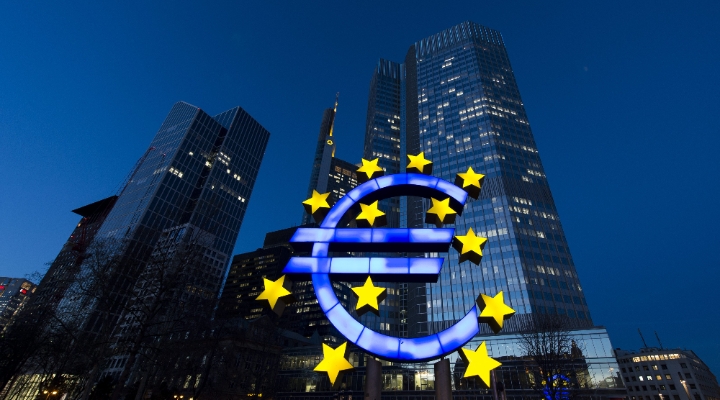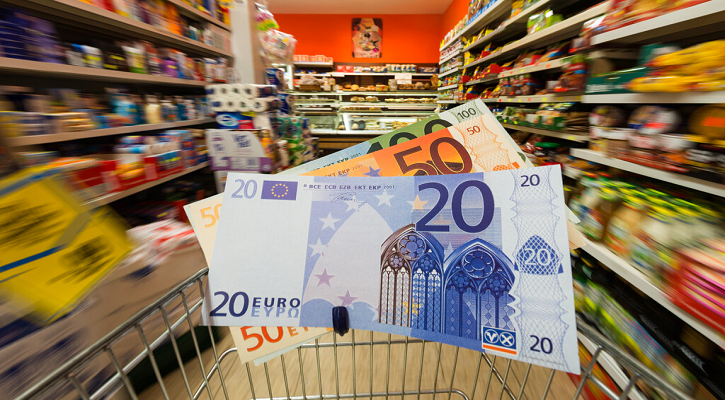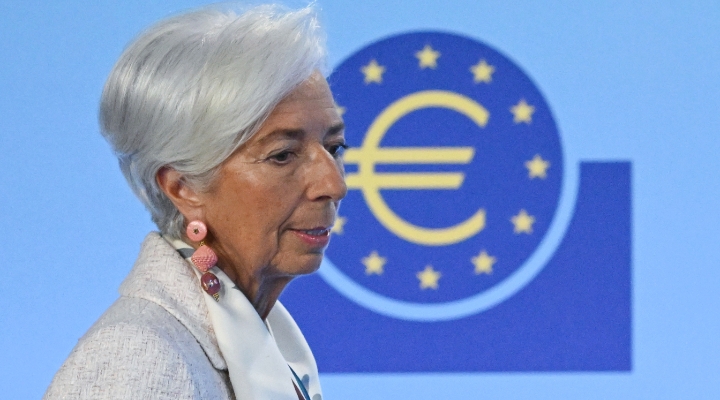
Inflation in the Eurozone rose to 2.9% in December according to latest estimates, putting hopes for rate cuts by the European Central Bank (ECB) in doubt.
The Eurozone's annual inflation rate was 2.9% in December, compared to 2.4% in November, according to Eurostat's flash estimate. This was the first rise in inflation across the region since April.
European stock markets have extended their intra-day losses as a result. The Stoxx Europe 600 index is down nearly 0.9% since open as excitement for an ECB rate cut dissipated. The euro also fell against the US dollar, and was worth €1.09 at the time of writing.
Shock Rise in December Inflation
"For those hoping inflation would continue to fall in a straight-line fashion, the news that European inflation rose 50 basis points to 2.9% in December will come as a shock," says Michael Field, Morningstar's European market strategist.
"Having fallen so close to the ECB’s targeted 2% level, it is of course disappointing to see inflation rise again; however, there is a very reasonable explanations for this.
"As we saw earlier this week in France and Germany, rising utility prices were the cause of this rise in overall inflation. This is essentially a technicality. Oil prices have fallen massively from their 2022 highs, but in December the caps that many European governments had placed on energy prices ran out, meaning prices went up, impacting inflation".
Core Inflation Falls
Core inflation, meanwhile, which shows price hikes without the cost of energy and food, actually fell 20 basis points to 3.4% in December.
"So the real takeaway here is that we are still moving in the right direction, and that underlying inflation is still falling", Field adds.
In December, the greatest contributors to Eurozone inflation were food, alcohol and tobacco (+6.1% year-on-year), followed by services (+4%), non-energy industrial goods (+2.5%) and energy (-6.7%), according to Eurostat.
All Eyes on Next Inflation Print
On Friday US non-farm payroll data showed an higher-than-expected rise in jobs, an influence on the Federal Reserve's plans this year to cut jobs.
"Some investors will undoubtedly be concerned this spike in inflation may put the ECB off cutting interest rates sooner rather than later. However, central bankers were always aware of the potential for this spike in inflation, thus it shouldn't factor in on their decision making process", Field says.
"That said, all eyes are on next month's inflation release, and whether we can get back to that all important downward trend".
For its part, Commerzbank notes that the end of a lower VAT rate on natural gas and restaurant services in January, alongside higher CO2 prices in Germany, could also prevent a stronger decline in Eurozone inflation.
Adjusted for these effects, however, the underlying upward pressure on prices should continue to ease over the course of the year. That's thanks to cheaper energy dampening price rises for non-energy goods and services for a few more months. The bank now estimates core inflation rate will likely fall to 2.5% by the middle of 2024.




























